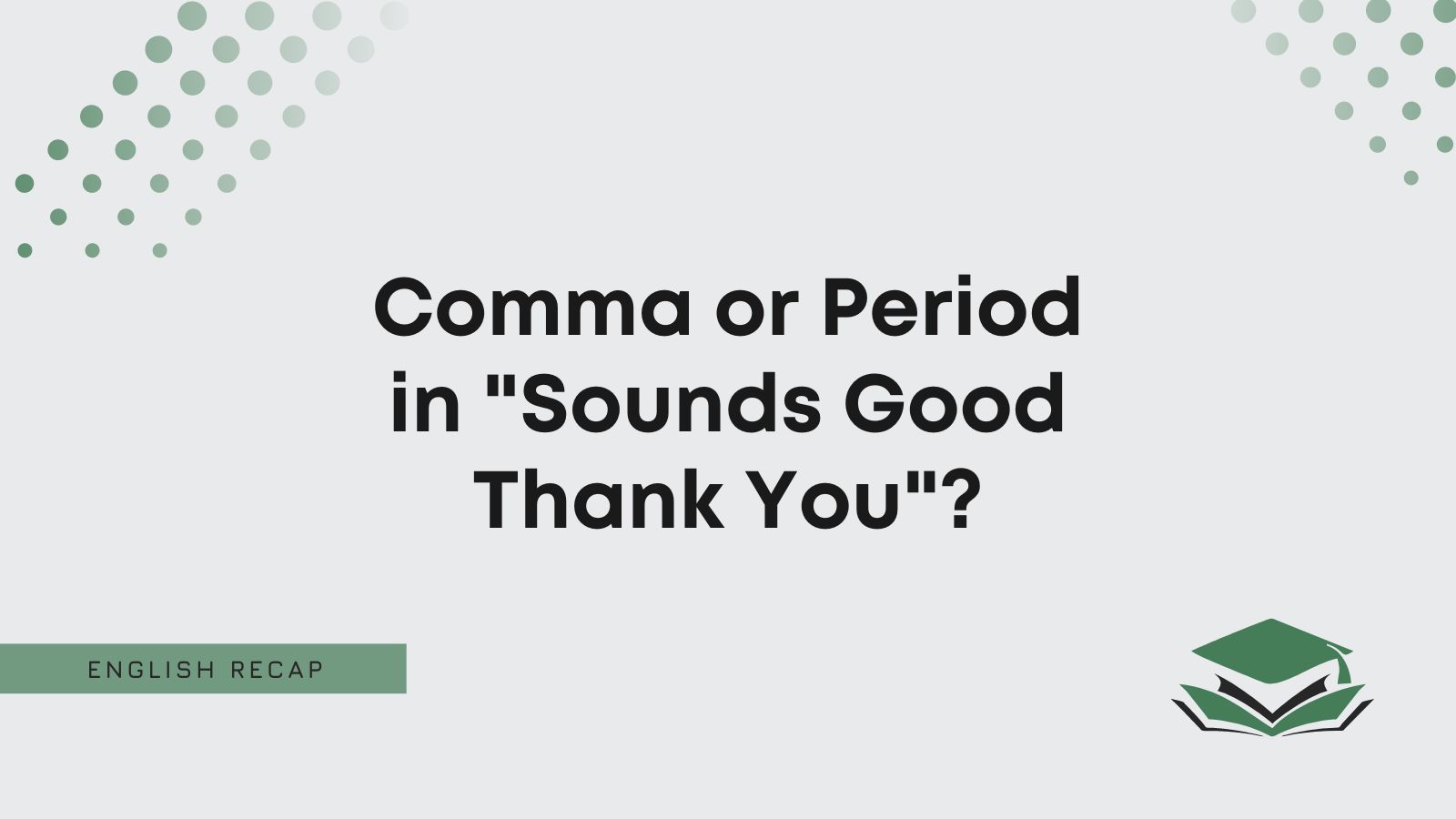The terms “Sounds good, thank you” and “Sounds good. Thank you” are both correct. If you wish to start a new sentence with the term “thank you,” you can, but it is not essential. However, writing the phrase “Sounds good thank you” without punctuation is incorrect.
You can use the phrase “sounds good, thank you” to indicate that you agree with a plan or statement. You can either separate the term with a comma or a period, but it must be separated.
- I will call you later.
- Correct: Sounds good, thank you.
- Correct: Sounds good. Thank you.
- Incorrect: Sounds good thank you.
You may prefer to separate the phrase with a period if it is part of a longer sentence and you do not want it to become too long.
- The plan that you told me about the other day sounds good. Thank you.
Keep reading the rest of the page to learn more about using punctuation with the phrase “sounds good, thank you.”
Sounds Good, Thank You
The term “sounds good, thank you” is grammatically correct, and you can separate the two parts of the phrase with a comma.
- Person 1: I will pick you up at your place at 9 pm.
- Person 2: Sounds good, thank you.
You can also choose to separate the two halves with a period, but you would generally do that as part of a longer sentence.
- Correct: I think that everything you said at the meeting sounds good. Thanks.
And, it is still correct to write:
- Correct: I think that everything you said at the meeting sounds good, thanks.
However, it is incorrect to write:
- Incorrect: I think that everything you said at the meeting sounds good thanks.
Sounds Good. Thank You
The term “Sounds good. Thank you” is perfectly correct and has the same meaning as “Sounds good, thank you.”
- Person 1: I will tell them that we are going to be late.
- Person 2: Sounds good. Thank you.
By adding the period, you add a slightly longer pause than by adding a comma. Therefore, you may wish to add a period instead of a comma when it is part of a more extended sentence.
- Correct: I don’t have time to check the complete list, but it all sounds good. Thank you.
Furthermore, if the second clause is independent, like in this sentence, you need to use a period or semicolon instead of a comma.
- Correct: I don’t have time to check the complete list, but it all sounds good; thank you.
- Incorrect: I don’t have time to check the complete list, but it all sounds good, thank you.
- Incorrect: I don’t have time to check the complete list, but it all sounds good thanks you.

